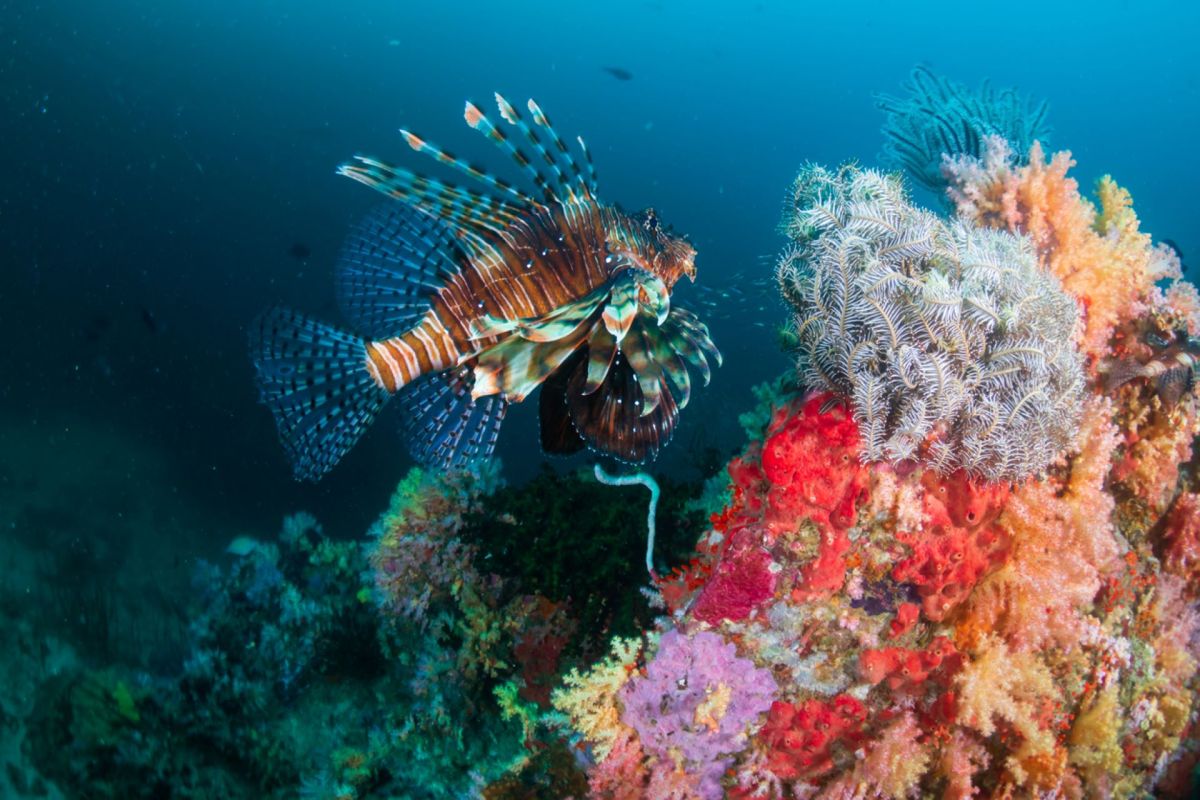The lionfish is an invasive predator devouring many coral sea-dwellers in an expanding range. Surprisingly, they also make a pretty good handbag.
That's where Tampa Bay-based Inversa is entering the water, creating a unique way to solve a big ocean problem — in high style with lionfish leather. And, somewhere, Cruella de Vil may be smiling a little.
"There are many other invasive species out there. We believe all of them can be used in fashion products," mechanical engineer and Inversa founder Aarav Chavda told Fast Company.
Lionfish are brown-and-white-striped fish with spines and tentacles arrayed on their bodies, according to the National Oceanic and Atmospheric Administration.
The invasive fish is native to the South Pacific and Indian Ocean. But they can now be found along the southeastern coast of the United States and in a growing number of other non-native waters, eating a multitude of creatures, per NOAA.
While many of the ocean's woes (including harm to other species) are linked to planet overheating, experts at NOAA report that lionfish may have been "intentionally released" in the Atlantic.
Chavda founded Inversa in 2020 after seeing coral reefs that were "faded and lifeless" while scuba diving, Fast Company reports. The problem is amplified by the fact that lionfish are relentless predators. Just one can diminish young fish numbers in its habitat by 80%, according to the Fast Company report. What's worse, lionfish females routinely spew 25,000 eggs, ensuring a robust population.
They are sometimes eaten and are fancy-looking spectacles in aquariums, which NOAA notes is a common human use for the species.
Making leather from them opens up an entirely new market.
"By creating this supply chain, we're creating an incentive for (anglers) to catch lionfish instead," he told Fast Company.
The company bolsters economies by buying thousands of lionfish daily from local catchers in Florida, Mexico, and the Caribbean. The meat is sent to restaurants, and the hides go to a tannery, using mostly all of the fish. Once treated, the fish skins are sent to other businesses, including Teton Leather Co., and are turned into sneakers, pocketbooks, and even watches.
Inversa touts an "ethical end-to-end supply chain," providing an alternative to cow leather and plastic for fashion wear, reducing air pollution and trash. It's not the first endeavor involving a marine-based leather alternative. Pirarucu is an Amazon species being turned into handbags, as well.
And if lionfish isn't your bag (a lionfish clutch, for reference, is listed at $1,499), Teton has other invasive species in its product line, including python wallets, priced at $429. Beaver and stingray products are also available.
Chavda acknowledges that Inversa has an ample supply of leather with lasting impact. Removing the predator from the sea can restore the flora and fauna in the area by up to 70%, per the company.
"Unfortunately, there are millions of lionfish in these ecosystems, and we have a long way to go to thinning out this population," he told Fast Company.
Join our free newsletter for weekly updates on the coolest innovations improving our lives and saving our planet.









